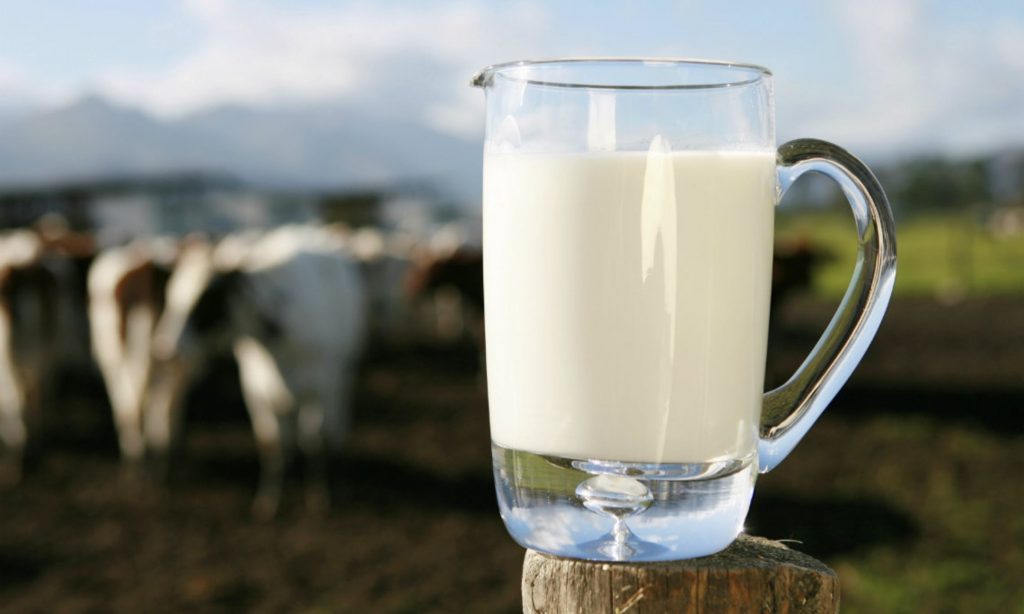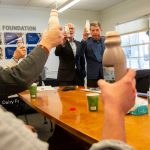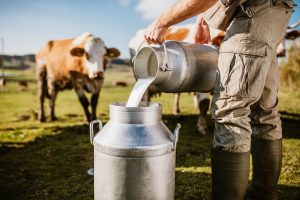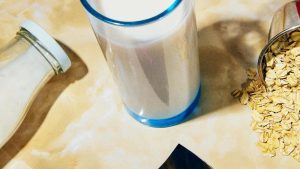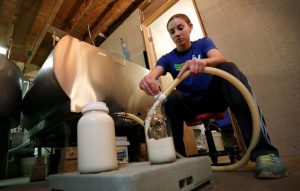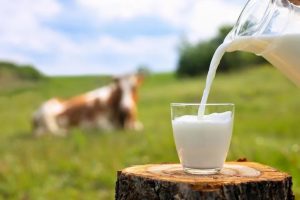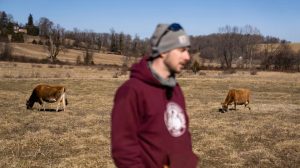
Rep. Ann Kelley, R-Lamar, pre-filed House Bill 78 and Sen. Jill Carter, R-Granby, is sponsor of a companion bill, Senate Bill 86. These bills would legalize the sale of “grade A retail raw milk or cream” produced in Missouri — making the products legal at grocery stores, restaurants, soda fountains, or similar establishments, as long as the milk is clearly marked with a specified warning label.
Raw milk retail sales in Missouri are currently banned. Only direct sales from farm to consumer are allowed. The goal of these bills is to side-step federal prohibitions on the sale and transportation of raw milk.
Fantasy vs. facts
The consumption of raw dairy is a contentious issue where science battles myths, social media may trump reliable internet sources, and food safety shakes hands with politics. Given the “buy local” trend, the general distrust of technology and food processing, and the misinformation posted on websites and blogs, some consumers now believe raw milk is better than pasteurized milk.
“I’ve always been surprised when I hear people extol the virtues of raw milk,” says Bill Marler, a leading food poisoning attorney based in Seattle. “I think there’s somewhat of a false sense of security in our food. In many respects, because we’re so good at feeding so many people safely, I think otherwise educated people still don’t necessarily see the risks involved in certain food consumptions.”
Health claims about consumption of raw milk have not been substantiated or are of very low consequence in the case of vitamin loss. But there is extensive documentation showing that raw milk is a known public health risk. The Centers for Disease Control and Prevention reports symptoms of raw milk consumption range from diarrhea, vomiting, nausea, fever, and abdominal cramps to severe syndromes such as Guillain-Barré, hemolytic uremic syndrome, septicemia, meningitis, and intrauterine infections in pregnant women.
Documented raw milk outbreaks and illnesses
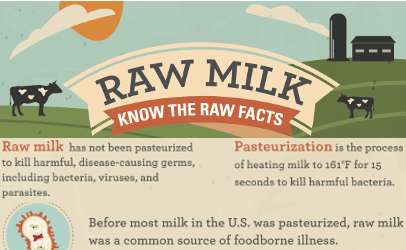
The CDC reported that from 1998 through 2018, 202 outbreaks and 2,645 outbreak-associated illnesses occurred because of drinking raw milk. Children under the age of 5 are at highest risk. From 2007 to 2012, at least one child under the age of 5 was involved in 59 percent of the outbreaks. One- to 4-year-olds accounted for 38 percent of the Salmonella illnesses and 28 percent of the Shiga toxin-producing E. coli illnesses, which can cause kidney failure, long-term health consequences, and death.
The Real Raw Milk Facts website documents the dangers of raw milk. This includes two children from Missouri who, in 2008, became infected by germs in raw milk and suffered life-threating diseases resulting in continuous, and possibly life-long, medical care and disabilities. Videos highlight family members discussing their children’s response to E. coli O157:H7 infection from contaminated, raw milk. These include stroke, kidney failure, gall bladder damage and central nervous system impairment. The stories are heartbreaking and ironic. The parents of affected children all believed apocryphal and anecdotal advice. They thought they were providing their children with a healthier alternative to pasteurized milk.
Yes, the bills pre-filed for this Missouri legislative session provide for a warning label on raw milk sold at retail in Missouri. Unfortunately, infants and toddlers don’t read. Neither do many seniors in assisted living or long-term care.
Federal raw milk regulation
Because milk is an important part of nutrition for infants, children, and older adults who may not be given a choice in what products they consume, raw milk consumption requires regulation. The interstate sale and distribution of raw dairy was prohibited by the U.S. Food and Drug Administration (FDA) in 1987, but this still leaves the legality of intrastate sale and distribution up to the various states.
“State legislators tend to run a bit conservative, and one of the things they really, really, really like are small farmers who come in and rail against government intervention and regulation. So it’s sometimes a very tough row to hoe, trying to convince legislators to not move forward with raw milk bills,” says Marler. Many legislators want to override federal laws because they believe in providing another income stream for small, family farms.
Call to action
If you are concerned about this possible legislation, please contact Missouri state representatives and senators and forward this article to them. Let’s prevent kidney failure in another Missouri toddler by alerting our legislators to the dangers of raw milk.
Debunking the raw milk myths
Many of the misconceptions about raw milk health benefits have been proven inaccurate by the U.S. Food and Drug Administration:
- Raw milk does not cure lactose intolerance.
- Raw milk does not cure or treat asthma or allergies.
- Raw milk is not more effective in treating osteoporosis than pasteurized milk.
- There are no beneficial bacteria (probiotics) in raw milk for gastrointestinal health.
- Raw milk is not an immune system-building food and is especially unsafe for children.
- There are no immunoglobulins in raw milk that enhance the human immune system.
- There are no additional proteases or lipases in raw milk that facilitate milk digestion.
- Raw milk is not nutritionally superior to pasteurized milk.
- Raw milk does not contain natural antimicrobial components that make it safe to drink.
- Raw milk does not contain nisin for pathogen inhibition.
- Folate-binding protein is not denatured during pasteurization, and folate (vitamin B9) utilization is not reduced in pasteurized milk.
